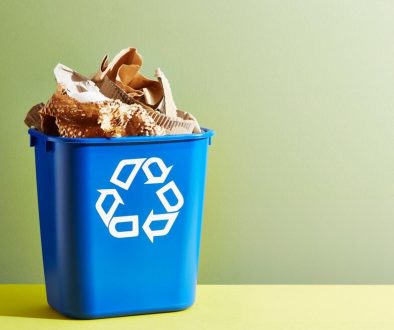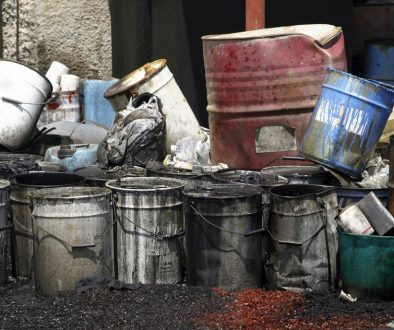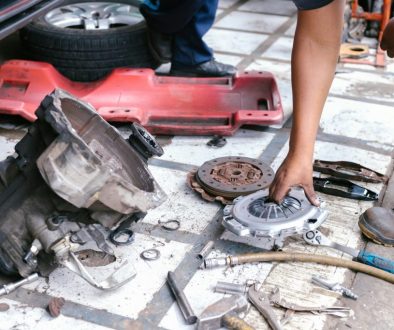Renovating your home or business premises can be both an exciting and demanding project, with numerous details and decisions to consider. In recent years, the importance of sustainable renovation practices has come to the forefront, as homeowners, businesses, and construction professionals increasingly recognise the need to minimise the environmental impact of building and renovation activities. In this blog post, we will explore the essentials of sustainable renovation, focusing on responsible waste management and eco-friendly material selection, guided by the expertise of Enviro Skip Hire.
Sustainable renovation involves making conscious choices and adopting best practices that minimise waste, conserve resources, and reduce the overall environmental footprint of your project. This approach typically encompasses aspects such as responsible waste management, the selection of sustainable materials, and energy-efficient building techniques. By prioritising sustainability throughout the renovation process, property owners and construction professionals can contribute to a greener built environment, while also enjoying the benefits of resource efficiency, cost savings, and enhanced property value.
In the following sections, we will delve into the key components of sustainable renovation, outlining practical strategies for efficient waste management, eco-friendly material selection, and responsible construction practices. We will also discuss the benefits of partnering with a reputable skip hire service like Enviro Skip Hire, as a crucial element of sustainable renovation waste management. With this comprehensive guide, you can take the first steps towards a successful and environmentally friendly renovation project.
A Guide to Sustainable Renovation: Waste Management and Material Selection
1. Sustainable Waste Management Strategies for Renovation Projects
Responsible waste management is a fundamental aspect of sustainable renovation, helping to minimise the environmental impact of your project while ensuring compliance with waste disposal regulations:
- Waste Prevention: Plan your renovation project carefully to reduce the generation of waste, considering factors such as material quantities, potential reuse of existing materials, and waste segregation.
- Recycling and Reusing: Prioritise the recycling and reuse of waste materials generated during the renovation, diverting as much waste as possible from landfill sites and contributing to resource conservation.
- Partner with a Reputable Skip Hire Service: Engage the services of a reliable skip hire provider, like Enviro Skip Hire, ensuring efficient and responsible waste disposal throughout your renovation project.
2. Choosing Eco-Friendly Materials for Sustainable Renovations
Selecting sustainable building materials is vital for reducing the environmental impact of your renovation, as well as promoting energy efficiency and indoor air quality:
- Responsibly Sourced Materials: Opt for building materials that have been responsibly sourced and manufactured, with consideration given to their environmental impact, durability, and recyclability.
- Energy-Efficient Solutions: Choose materials that contribute to the overall energy efficiency of your renovated space, such as high-performance insulation, energy-efficient windows, and environmentally friendly paints.
- Reclaimed Materials: Tap into the potential of reclaimed or recycled materials, such as reclaimed timber, recycled metal, or salvaged bricks, offering both environmental and aesthetic benefits.
3. Incorporating Energy and Water Efficiency Measures in Sustainable Renovations
Encompass wider eco-friendly improvements within your renovation project, focusing on boosting the energy and water efficiency of your property:
- Heating and Cooling Solutions: Install efficient heating, ventilation, and air conditioning (HVAC) systems or upgrade existing systems to minimise energy consumption and greenhouse gas emissions.
- Lighting and Electrical Upgrades: Replace older lighting fixtures with energy-efficient LED or CFL options, and upgrade electrical appliances to more energy-efficient models.
- Water Conservation Measures: Implement water-saving solutions, such as installing low-flow fixtures, rainwater harvesting systems, or greywater recycling systems, reducing water usage and associated environmental impacts.
4. The Importance of Working with Sustainable Construction Professionals
Collaborating with experienced construction professionals who share your commitment to sustainable renovation practices is vital for achieving your green renovation goals:
- Experience in Sustainable Construction: Choose contractors, architects, and other building professionals who are knowledgeable in sustainable construction techniques and eco-friendly material selection.
- Knowledge of Local Regulations: Ensure your construction partners are familiar with local building codes, environmental regulations, and sustainability-related incentives or grants, helping your project meet legal requirements and maximise potential benefits.
- Clear Communication of Environmental Goals: Establish open communication channels with your renovation team and explain your sustainability goals, ensuring a shared understanding of your project’s environmental objectives and expectations.
Conclusion
Embracing sustainable renovation practices is an effective way to minimise the environmental impact of your building project, conserve resources, and create a healthier and more energy-efficient living or working space. By adopting responsible waste management strategies, selecting eco-friendly materials, and incorporating energy and water efficiency measures, you can turn your renovation project into an environmentally responsible endeavour.
Collaborating with sustainable construction professionals and partnering with a reputable skip hire service like Enviro Skip Hire are crucial steps towards achieving your green renovation goals. Use the insights and strategies detailed in this guide to embark on a sustainable renovation journey, creating a built environment that reflects your commitment to environmental responsibility and resource conservation.




